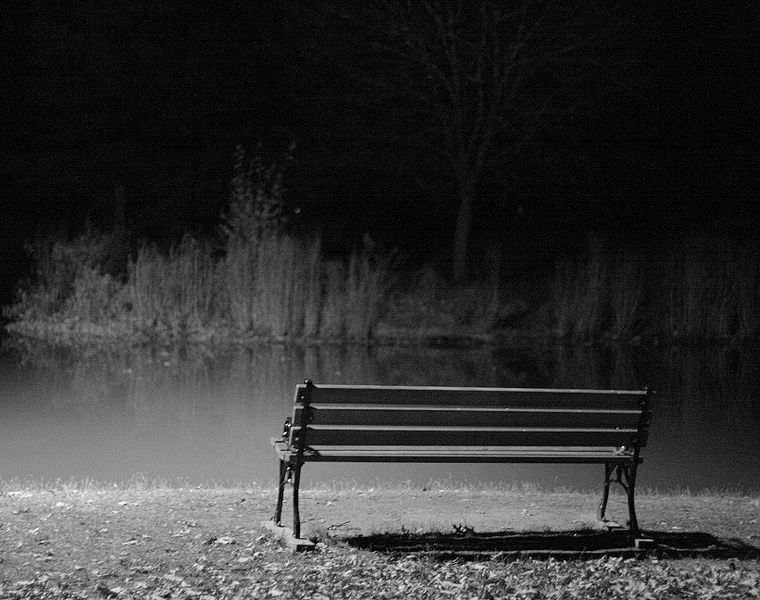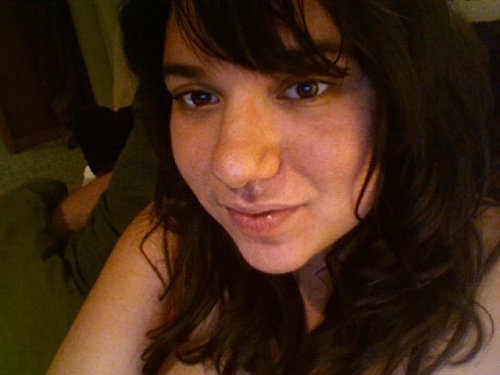I don’t know why I started the Stranger Dinners. Maybe it was out of loneliness. I was living in a new town with my two best friends, having just graduated from college where hundreds of familiar and interesting faces would greet me as soon as I walked out my door. I had been so excited to finally be free of the isolated bubble of school. I thought it was holding me back, with its assignments and requirements and obligatory hoops to jump through. I was ready to be set free so I could finally do what I wanted: make art.
I often likened concentrating in sculpture to majoring in possibilities. As I learned more and more about contemporary art practice and theory, my definition of what art was and what it could be expanded until there were no limits. A sculpture could be anything from an idea to an action, a crafted situation, a social experiment, a conspiracy, a business venture, an anecdote told at a party. I spent my last semester trying to walk on the edge of what art could be. I planned field trips, elaborate parties, chance meetings, experiential devices, and rumors. I was a little misunderstood but very happy, and I was excited for the day when I would graduate and have the freedom to do even more.
It soon hit me that school hadn’t prepared me for the reality that lay beyond. In the real world, people didn’t have time to make art. Work that actually earned money took over life. I longed for the creative collaboration between people who had time to philosophize, to create, to experiment, to discuss, to learn and to teach. In school, I had been isolated, but at least I was with hundreds of fellow students and faculty. In the real world, I felt, everyone lives in their own little world, working to pay their rent and provide for themselves.
Working part time in a frame shop, and spending my free time working on projects alone at my house, I felt a very basic, almost laughable question begin to surface.
What is everyone doing?

Where is everyone? And What are they doing? (photo by Derek Harper)
I felt like I missed something. Is this it? You have a few friends, you wake up, go to work, pay rent, and get some fun in when you can? I would make a painting and look at it, thinking, “What is this for?” I wondered how other people were spending their time. How were people figuring out how to balance their obligations with their pleasures? How did they make decisions? How do we all decide what is right for us–what to sacrifice and what to invest? What city to live in? What jobs to apply for? What to do with our lives?
I asked everyone I came across what their life was like. Did they like what they were doing? How did they do it? Why did they like it? How did they get to that point? What did they do before? What were the obstacles? What were the perks? What were the downfalls?
I felt like I was lost in this big labyrinth and the whole world was at a party in the center of it.
Slowly it dawned on me: no one had the answer. There was no right path. Everyone stumbles their way through. Some people get lucky breaks, some people have lower expectations, some people are unhappy, some people are happy. It is always changing and evolving. Everyone just works with what they have, and from their own perspective.
So what if we all started collaborating? What if we shared our perspectives? Not just with our family and friends, but with everyone? I wanted to know what a real life was like, and movies weren’t really helping.
The internet has been a huge tool for doing just this. We can share the most intimate details of our lives with strangers, from vacations pictures to opinions, to skin infections and the latest fashions. People type out their greatest fears, aspirations, confessions, and successes for the vast unknown sea of people to read and comment on. This gives access to a seemingly infinite amount of information without having to even get out of bed.
But there’s something isolating about the internet. This screen we use as a portal to connect ourselves to each other creates an invisible barrier between ourselves an others. The voyeuristic nature of Facebook allows us to keep up with our acquaintances and friends without them even knowing, and without the exchange that let’s them know we care, and without actually having any kind of substantial relationship with these people.
I just clicked over to someone’s Twitter page. I don’t know this girl, but I’ve been following her life for almost a year. The background on her twitter page says, “I thought I was a narcissist. That is, until I met the rest of the internet.” It’s true, we are all broadcasting the stories of our lives (some more than others). We are posturing as ourselves in order to make superficial connections with as many people as possible. Social capital is suffering from inflation. It’s not enough to have 50 people in real life you really care about, you have to have 500 facebook friends too. What? You don’t have 1000 followers on Twitter? You might as well be shouting into the void, because no one hears what you say.
Communication has been one-sided too long. We are starting to learn how to make all this technology work for us. It’s starting to occur to people that these amazing networks we are building can help us improve the communities where we actually exist. With the internet, I can now find all the garage sales in my neighborhood, order takeout, find a date, join a pillow fight, and locate my favorite food cart when I get that special craving.
.jpg)
The dinner table as meeting place (still from the 1946 film The Stranger)
In response to all these ideas and questions, I started inviting strangers to my house for a potluck. With the Stranger Dinners, I seek to bridge the gap between personal and impersonal, between the mass communication and face to face interaction. I want to bring what is good about the internet and relocate it from the ephemeral everywhere and nowhere plane and bring it closer. I want to create the opportunity for people to find something they might not think to look for. I want to take the idea of StumbleUpon and bring it to the dinner table. Let us cultivate an open flow of information without the anonymity. That way, the value placed on the information or opportunities we come across are tied to real people who live in our physical communities. I want the humanity back. Instead of going to the library and researching on the internet, I want to stroll through the stacks, smell the pages of old books, pick a random book off the shelf, and let some serendipity into my life.
Most of all, I want to keep myself open to the physical world around me, and all the people who live there. I want us to act as though we have the world in common. If we’re all in this together, we’ll have all the support we need to get us through. Through my art practice, I seek to create situations outside of our everyday expectations of the world. I strive to actively create what I find lacking from my everyday experience. And I want to explore the possibilities that can come from encouraging people to talk to each other without reason, motivation, agenda, self-selection, or presumption. They’re no telling what we will find if we look just outside of our everyday experience.









